All Stories
-
 Science & Society
Science & SocietyHow we reported on the challenges of using ancestry tests to solve crimes
Here’s how we found out what happened when an arrest was made in the Golden State Killer case that was tied to genetic testing.
-
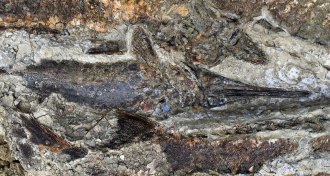 Science & Society
Science & SocietyHow we reported a controversial story about the day the dinosaurs died
Here’s how we covered the story of new fossils found in the Tanis site in North Dakota, including the story’s more controversial elements.
-
 Science & Society
Science & SocietyIntroducing the Transparency Project
The Transparency Project aims to be more open and accountable to readers by explaining key coverage decisions and showing how science journalism happens.
By Nancy Shute -
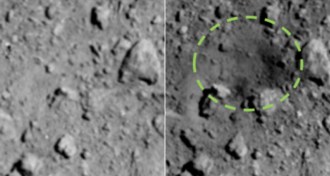 Planetary Science
Planetary SciencePictures confirm Hayabusa2 made a crater in asteroid Ryugu
Hayabusa2’s crater-blasting success, confirmed by an image beamed back from the spacecraft, paves the way to grab subsurface asteroid dust.
-
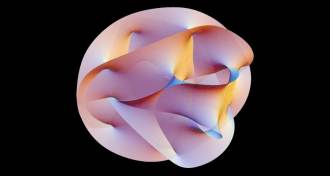 Math
MathA mathematician traces his journey from poverty to prominence
In 'The Shape of Life,' Shing-Tung Yau describes his groundbreaking work in geometry, which provided insights into string theory.
By Diana Steele -
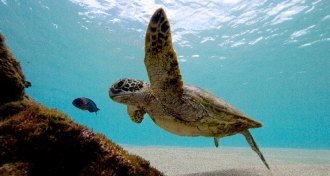 Animals
AnimalsEndangered green sea turtles may be making a comeback in the U.S. Pacific
The numbers of green sea turtles spotted around Hawaii, American Samoa and the Mariana Islands have increased in the last decade.
By Maanvi Singh -
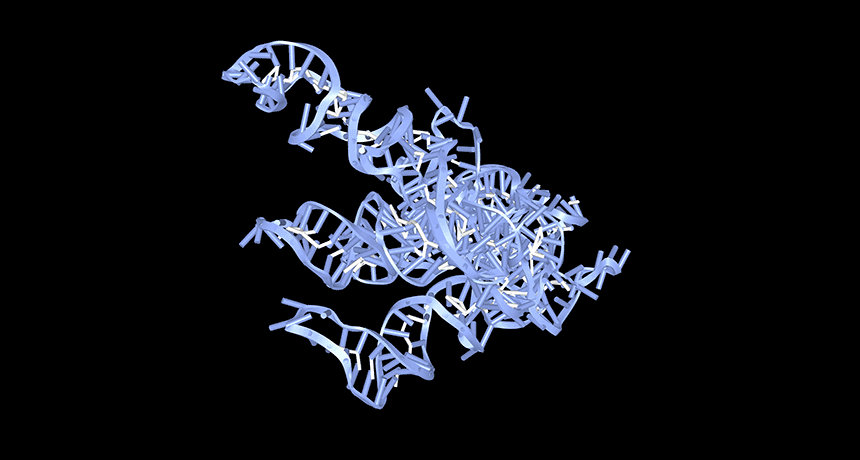 Genetics
GeneticsA lack of circular RNAs may trigger lupus
Researchers close in on how low levels of a kind of RNA may trigger lupus — offering hope for future treatments for the autoimmune disease.
-
 Microbes
MicrobesA global survey finds that the Arctic Ocean is a hot spot for viruses
Scientists mapped virus diversity around the world’s oceans. That knowledge may be key to making better climate simulations.
By Jeremy Rehm -
 Chemistry
Chemistry50 years ago, scientists fought over element 104’s discovery
A conflict known as the Transfermium Wars marked a contentious struggle over the search for new elements beginning in the 1960s.
-
 Health & Medicine
Health & MedicineU.S. measles cases hit a record high since the disease was eliminated in 2000
Each year from 2010 to 2017, 21 million children did not get vaccinated against measles, according to UNICEF.
-
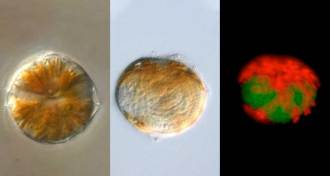 Genetics
GeneticsA marine parasite’s mitochondria lack DNA but still churn out energy
Missing mitochondrial DNA inside a parasitic marine microbe turned up inside the organism’s nucleus.
-
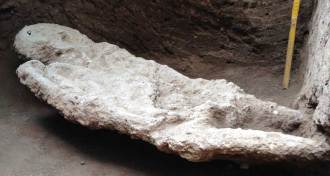 Archaeology
ArchaeologyExcavations show hunter-gatherers lived in the Amazon more than 10,000 years ago
Early foragers may have laid the foundation for farming’s ascent in South America’s tropical forests.
By Bruce Bower